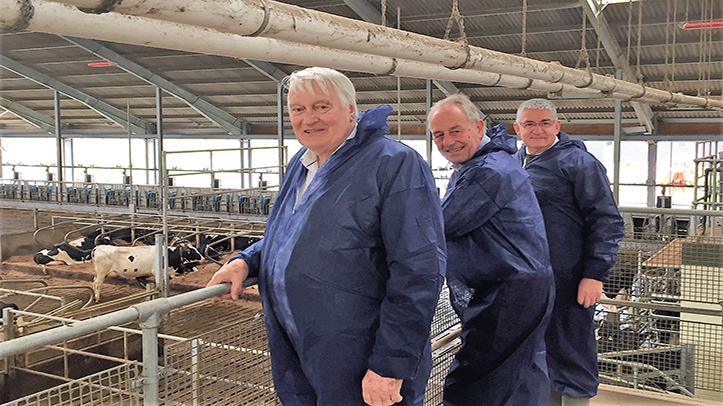Dairy farmers switching from palm-derived calcium soap-based fats to a palm-free and chemical-free alternative can reduce their feed carbon footprint by saving up to 55 tonnes of CO₂ equivalent, over the course of a whole lactation, according to research from the University of Nottingham.
Revisiting figures from his initial trial work at the Centre for Dairy Science Innovation (CDSI) at the University of Nottingham in 2021, Emeritus Professor Phil Garnsworthy has calculated that the 64% lower carbon footprint of the palm-free supplement Envirolac, compared to a control palm-oil based fat, equates to a saving of 15 tonnes CO₂ equivalent during early lactation, and up to 55 tonnes for the whole lactation.
These figures are based on a 200-strong herd being fed Envirolac at 0.5kg/day, replacing the control fat supplement on a fresh weight for fresh weight basis.
The trial also revealed that Envirolac, a palm-free and chemical-free fat supplement manufactured by UFAC-UK from locally sourced vegetable oils, together with marine oils, also returned performance benefits against the control, with a significant increase in milk yield and butterfat production, with no impact on dry matter intake.
The university trial results are now being mirrored in commercial studies, with encouraging early results across the study farms.
“We were delighted with the initial University trial results, with Envirolac providing a 64% reduction on the feed carbon footprint, when compared to the palm-based control, reducing the feed carbon footprint per kg of milk by 11%,” said Robert Jones, UFAC-UK’s managing director.
“However, we wanted to put this data into relatable language for the dairy farmer, and this 55 tonnes CO₂equivalent reduction per year certainly does that. We are all reading about the various quick fixes to help reduce the farm carbon footprint, but these figures represent a significant saving, which is easily achieved, helping towards meeting Net Zero targets,” he adds.
Importantly, as well as the significant carbon footprint and CO₂ reductions, the trial results also saw an overall increase in feed conversion efficiency.
The university trial results are now being replicated in the commercial studies, with the initial results showing trial farms had lowered their feed carbon footprint by more than 10%, while also returning impressive milk yield improvements, with an average increase of 1.4kg, when using Envirolac. Lifts in total milk solids of 0.10kg were also recorded.
Professor Garnsworthy added: “Targeted and precision feeding of Envirolac offers producers the potential of significant financial gains through improved quantity and quality of milk produced, while increased production efficiencies should help increase profits.”
Mr Jones continued: “It is very encouraging to see the Nottingham University trial being translated into the commercial environment and exceeding results achieved under controlled conditions.
“Now with this new data, we can really illustrate the key role Envirolac can play in helping the dairy sector reduce its carbon footprint, while maintaining or improving production efficiencies.”


